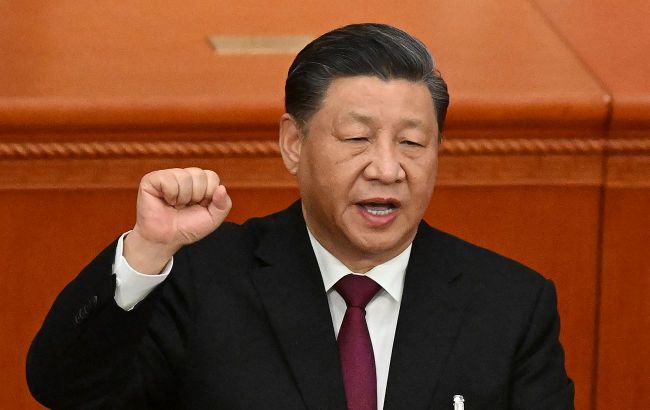China imposes strict export controls on rare earths ahead of US talks - FT
 Chinese President Xi Jinping (photo: Getty Images)
Chinese President Xi Jinping (photo: Getty Images)
Beijing has announced strict export control measures on rare earths and related technologies, strengthening its influence over critical minerals ahead of talks between US President Donald Trump and Chinese leader Xi Jinping, according to the Financial Times.
According to the new rules, foreign companies will be required to obtain Beijing's approval to export magnets that contain even small amounts of rare earths of Chinese origin or were produced using Chinese mining, processing, or magnet manufacturing technologies.
The restrictions, announced by China's Ministry of Commerce, create for the first time a Chinese version of the US foreign direct product rule, which Washington has used to block exports to China from third countries of semiconductor-related products.
These rules give Beijing greater leverage over the global rare earth supply chain.
Rare earths and magnets are critical for technologies ranging from smartphones to electric vehicles and fighter jets.
Beijing first introduced restrictions on rare earth exports in April in response to tariffs imposed by the Trump administration. That move forced Washington to come to the negotiating table as the shortage of Chinese rare earths began to affect production in US automotive supply chains.
Since then, the mineral shortage in the US has been the subject of several rounds of trade talks between the two countries. The new control measures from China come ahead of the meeting between Xi Jinping and Trump in Seoul, South Korea, this month.
According to the Financial Times, China controls:
- About 70% of rare earth mining,
- 90% of separation and processing,
- 93% of magnet production.
China's Ministry of Commerce stated that the new measures are intended to "protect its national security and interests" and prevent the "misuse of rare-earth materials in military and other sensitive sectors."
The ministry added that some foreign companies have harmed China's security by transferring rare earth materials and technologies of Chinese origin to other parties for military use.
The new licensing system will apply to foreign-made rare earth magnets and certain semiconductor materials that contain at least 0.1% by value of heavy rare earth elements of Chinese origin.
The ministry stated that the rules will take effect on December 1, and most export licenses for military users will be denied. Exports to semiconductor manufacturers and related equipment producers will be reviewed on a case-by-case basis.
The news boosted shares of major Chinese state-owned rare earth groups:
- Shares of China Northern Rare Earth in Shanghai rose by more than 7%,
- Rising Nonferrous Metals Share increased by more than 4%.
China's expanded control over rare earths has prompted Washington to introduce substantial government support for US rare earth miners and magnet producers in an effort to weaken Beijing's dominance.
The Group of Seven (G7) advanced economies is also exploring the possibility of establishing a supply chain independent of China.
In recent days, it became known that China, the world's largest importer of crude oil, plans to open 11 new oil fields this year and next.
This will allow the country to increase its oil storage capacity by nearly 170 million barrels.
In addition, China's aerospace industry has unveiled a new concept for a heavy transport aircraft that could significantly expand the capabilities of the People's Liberation Army (PLA) in global logistics and power projection.

